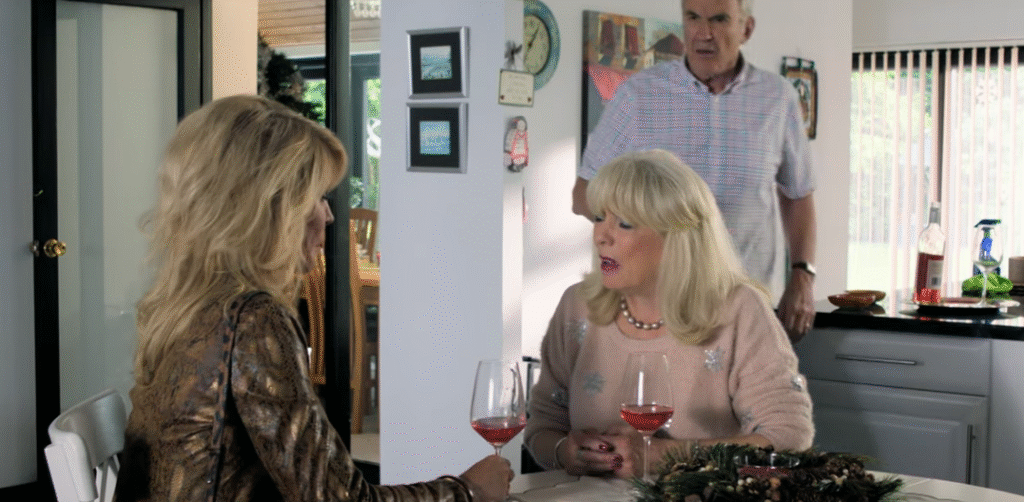| Attribute | Details |
|---|---|
| Name | Julia Davis |
| Character | Dawn Sutcliffe |
| Known For | Gavin and Stacey, Nighty Night, Camping, Sally4Ever |
| Profession | Comedian, actress, writer, director |
| Plastic Surgery Rumors | Cheek fillers, possible eye area augmentation, facial fillers |
| Fan Reaction | Mixed—some critical, others supportive |
| Media Coverage | Reddit, Facebook, TikTok, The Tab, Daily Mail |
| Industry Trend | Increasing cosmetic tweaks among sitcom stars |
| Public Perception | From “beloved and natural” to “visibly altered” |
| Source | https://thetab.com/2023/09/01/a-look-at-the-wild-transformations-of-the-gavin-and-stacey-cast-16-years-on |

In recent months, rumors about Julia Davis’s dramatically changed appearance—better known to millions as Dawn from Gavin and Stacey—have been quietly circulating on the internet. Even though her keen sense of humor has never wavered, her cheekbones, jawline, and narrower eye contour now take center stage in conversations. Many fans are surprised at how drastically her features seem to have changed since the show’s original run, and public reactions range from curiosity to discomfort.
The discussion erupted on Reddit, where dozens of people upvoted a fan’s comment that described her face as “scarily wide” because of the overfilled cheek areas. Longtime viewers shared side-by-side pictures of Davis on Facebook, expressing a similar sentiment about how much “lovelier” she used to look. By contrasting previous episodes with her most recent podcast appearances and on-set selfies, TikTok compilations stoked even more conjecture.
It’s interesting to note that Davis has not responded to the rumors in public. Her silence feels both defiant and revealing in a field where artistic ability is frequently subordinated to appearance. Roles that challenge expectations have been the foundation of Julia Davis’s career; she frequently plays characters who are hilariously unconventional, unfiltered, and unapologetically flawed. Her choice to accept—or at least not reject—the aesthetic changes comes across as a personal development rather than a sign of capitulation.
The subject isn’t isolated. In British television, cosmetic procedures—particularly non-invasive enhancements like Botox and fillers—have become remarkably prevalent. Once mostly exempt from these demands, female comedians are now subject to the same aesthetic standards as drama actresses and pop singers. Even for people who are more known for their wit than their beauty, youthful appearance is becoming more and more valued as a professional advantage. Actors like Nicole Kidman and Courteney Cox, in contrast, have publicly talked about how aesthetic pressures influenced their choices to have procedures done; these choices are frequently questioned rather than defended.
However, the way that Davis’s metamorphosis contrasts with Dawn’s grounded familiarity is what really stands out about it. In contrast to glitzy characters, Dawn was bold, passionate, and refreshingly flawed. Gavin and Stacey felt so grounded because of her erratic outbursts, exaggerated facial expressions, and unfiltered comedic moments. For many fans, seeing the same character with a notably changed face breaks the emotional flow and creates a boundary between reality and memory.
However, it is important to recognize that actors are human beings, not amber-frozen characters. Their lives go far beyond their most well-known roles, and their individual decisions—whether motivated by personal preferences, industry norms, or personal fears—should be respected. Julia Davis has a brilliant comedic voice, but judging her only on the basis of her changed appearance runs the risk of being reduced to superficial commentary.
From a wider angle, this response highlights the complex relationship society has with aging and beauty, particularly as it relates to women in the media. Women are constantly under pressure to look young, while men are frequently praised for aging with “grace.” Both public commentary and casting decisions exhibit this double standard. Davis’s metamorphosis turns into a mirror reflecting societal fears of change, longing, and the unease that comes with watching our favorite people age—especially when they don’t age “naturally.”
It’s interesting to note that Davis is not the only one of her Gavin and Stacey co-stars to experience criticism regarding their looks. Rob Brydon’s stylish rebranding, Ruth Jones’ transformation into Nessa, and Mathew Horne’s transformation into a “Morrissey dad” have also been mentioned in online debates. But none of these conversations are as harsh or condemning as those directed at Davis. This disparity, which is deeply cultural and intelligently gendered, highlights the unequal expectations that are placed on women in the entertainment industry.
Nevertheless, Davis’s decision to allow her face to be discussed shows a great deal of bravery. Her recent appearance, whether deliberate or accidental, sparks a more in-depth conversation about who gets to age, how people are permitted to change, and what audiences actually value. Ironically, perhaps, this metamorphosis is what once again demonstrates her comic genius—making fans face their prejudices while they attempt to laugh through discomfort.
Despite being vocal, the backlash has also generated support. While some TikTok fans hailed her appearance as “refreshingly confident,” others contended that conversations about her appearance detract from her true legacy, which is her writing. Programs such as Sally4Ever and Nighty Night continue to be darkly brilliant and fiercely original, providing stories that were years ahead of their time. In the midst of cheek filler arguments, it’s simple to overlook Julia Davis’s impact on a whole generation of comedians.
This controversy surrounding plastic surgery has far-reaching effects on society that go far beyond a single actress. It is a component of a larger examination of how viewers view older women, particularly those who were never promoted as sexual icons. In a hyper-visual society, public figures navigating aging frequently face conflicting expectations: don’t age, but don’t look old either. Julia Davis is at the center of this tension, and it is exhausting to experience this cognitive dissonance.
Whether or not Davis had “too much work done” isn’t necessarily the most important lesson learned; rather, it’s why it matters so much to us. A deeper discomfort with time’s natural flow is revealed by the need to question her facial symmetry or make educated guesses about the amount of filler she needs. There is an implicit demand that the faces from our favorite shows remain frozen in their original form in a media landscape that is continuously recycling the past through reboots, reunions, and remakes. However, neither people nor time operate in that manner.

